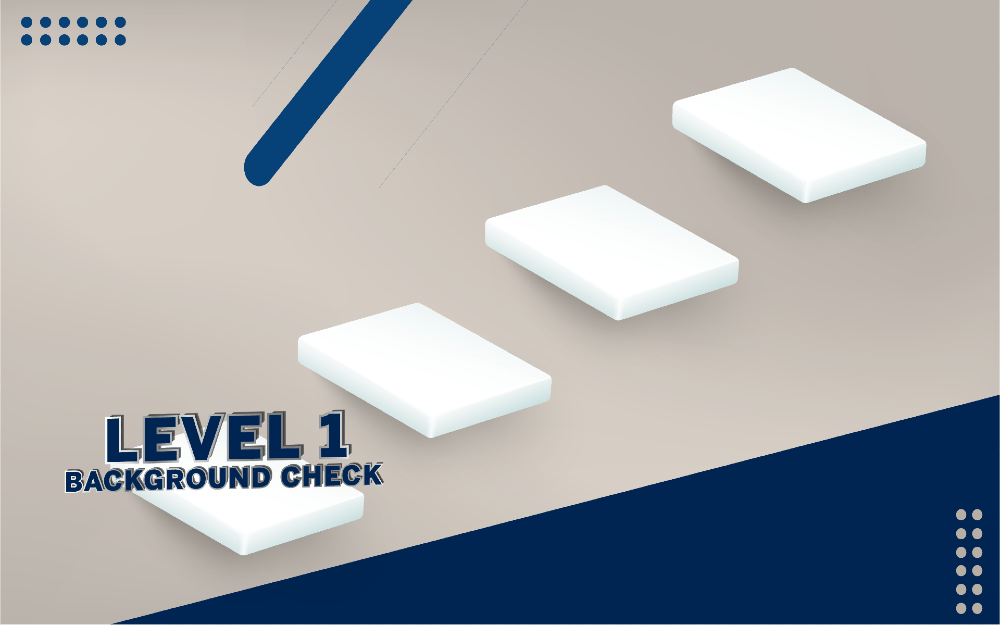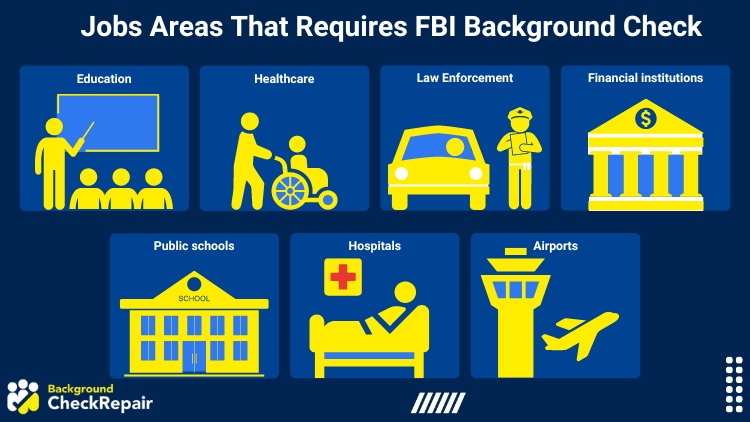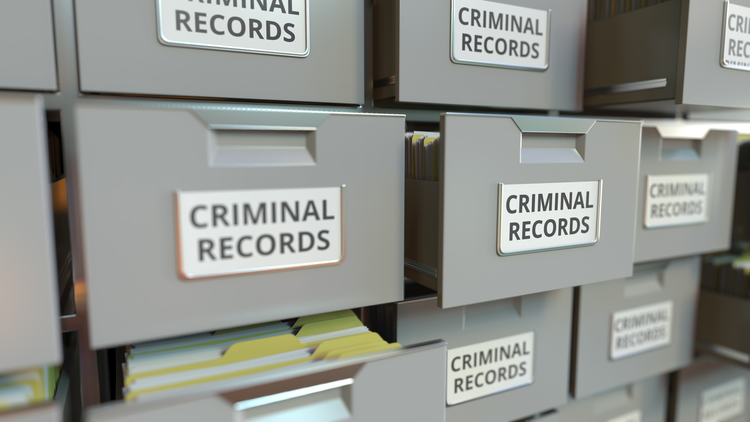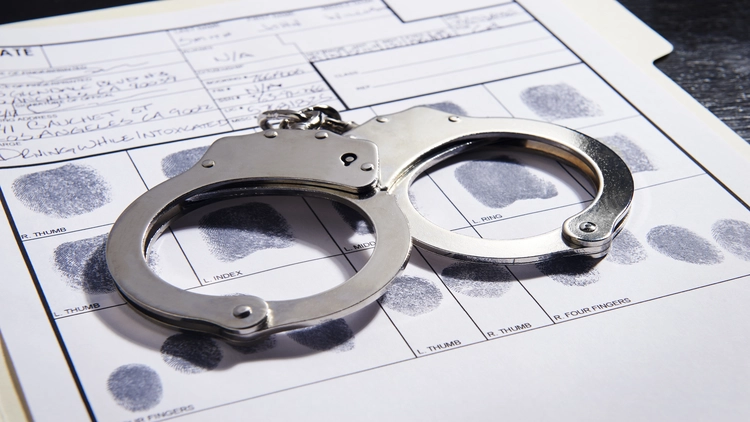We use cookies to ensure that we give you the best experience on our website. If you continue to use this site we will assume that you are happy with it
Why Level 1 Background Checks Can Be a Big Mistake
 Written by Kristy Griffin
Written by Kristy Griffin
Background Checks | May 8, 2024

Table of Contents
Background checks are needed for many reasons. Employers often use background checks when considering applicants for job openings. There’s a variety of screening options available, and the most basic is a level 1 background check.
However, choosing a level 1 background check can sometimes be a big mistake.
There are times when a level 1 background check may be all that is needed, but this type can be insufficient and may be missing critical information from a person’s employment and criminal history records (why a level 2 check should almost always be included).
This article will explain the differences between the background check options, so you will feel confident knowing what a level 1 background check is and when it is okay to use one.
Level 1 Background Check: Quick Overview
A level 1 background check is the most basic kind of background check. It is a name-only check and will include only the state and local employment and criminal records, and sometimes the state sex offender registry.
In other words, it isn’t considered a full-scale check.
What Is a Level 1 Background Check Used For?
This check may be used by potential employers for job openings that do not require a high level of trust or responsibility. However, the Fair Credit Reporting Act (FCRA) ensures that a job applicant must expressly give his or her permission for an employer to run even a level 1 background check.2
Exactly What Does Level 1 Mean on Background Checks?
Only the State of Florida has actually defined by state statute the term “Level 1” background check.3
However, the term is used generally by all the states. The term Level 1 Background Check refers to a basic background check that checks a person’s name against local and state criminal records, the state’s sex offender registry, and employment records. The level 1 background check is an essential one but may be a big mistake and severely lacking in what is actually needed.
The Difference Between Level 2 and Level 1 Background Checks
Again, only the State of Florida has defined the term “Level 2” background check, but, like the term level 1 background check, other states often use the term level 2 when referring to a more thorough background check. A level 2 background check will utilize a fingerprint check,3 rather than a name-only check, and will search national criminal records, as well as state and local records.
The level 2 background check is much more thorough than the level 1 check. The level 2 check is usually required for employment positions involving a higher level of trust and responsibility, such as those involving:
- children
- the elderly
- the disabled
- financial oversight
Clearly, using only a level 1 background check would be a big mistake if an employer would be placing the subject in a position of power or one that involves great responsibility and trust. Hiring an employee for a position involving children or the elderly or dealing with financial resources requires a careful review of the employee’s background.
Placing the wrong person in a position of power or control could expose the employer to unnecessary liability and potentially place others at harm. If criminal records were available through a level 2 background check that would disqualify a person from holding a particular position, the employer would indeed be making a big mistake by utilizing a level 1 background check.
The Difference Between Level 3 and Level 1 Background Checks
Unlike the terms Level 1 and Level 2, the term Level 3 check is not defined by Florida’s state statutes. However, like level 1 and level 2, the term level 3 is used throughout the country. It refers to a background check that is more thorough and detailed than the first two and often includes records checks of databases specific to certain fields or professions.
One example of this would be a level 3 background check for a healthcare professional that would include a review of the Fraud and Abuse Control Information System (FACIS) database.8 This database contains information about actions that may have been taken against a healthcare professional and includes those that may affect licensure.
Level 3 background checks are often used to check for criminal history, but also to check professional credentials and licenses that may be needed for the job position. It’s used primarily for managerial and professional jobs and searches thousands of local, state, and national databases.
When hiring for a position that requires information that a level 3 background check would reveal, it would be a big mistake to use only a level 1 background check. A level 1 background check could not deliver the depth and breadth of information necessary for filling a position that requires a professional license such as a physician.
The Difference Between FBI Background Check and Level 1 Background Checks
An FBI Background Investigation is one of the most extensive and thorough background checks available. The FBI website refers to the report issued by the FBI as an “Identity History Summary”.1 This background check will include a summary of a person’s criminal history reported to the FBI. It includes all arrests and any time someone has ever been fingerprinted, for any reason.
An FBI check may also include a person’s federal employment, military, and naturalization history. As a Level 2 Background Check, the FBI Background Check uses a person’s fingerprints to search criminal records.
Using a person’s fingerprints ensures inaccuracy that can be caused by the level 1 check, which is a name-only check. Due to the use of aliases or false identification, a names-only check is much less effective.

FBI background checks are used for certain employment positions but also are used for travel visas, adoption, and immigration. The types of jobs that may require an FBI background check include jobs in the following areas:
- Education
- Healthcare
- Law enforcement
- Financial institutions
- Public schools
- Hospitals
- Airports
And to be licensed in certain professions, an FBI background check is required. Some such professions include:
- Veterinary medicine
- Chiropractor
- Loan Officer
- Mortgage broker
Obviously, a level 1 background check would be a big mistake if you needed to fill a position that required an FBI Background Check instead. An FBI Background Check gives a level of confidence that a level 1 check simply cannot provide.
How Far Back Does a Level 1 Background Check Go?
It depends on the state where the level 1 background check is being done, but some criminal actions stay on a person’s record permanently. For instance, in certain states, a felony will show up on a level 1 background check no matter how long ago it happened unless a person is able to have it expunged and takes the steps necessary to do so.

However, most states have some form of limit to how far back certain criminal records can be reported to a potential employer. Some states have a 7-year rule that limits criminal record reporting to the prior 7 years. Some states have a 10-year rule.
States that follow the 7-year rule include:
- California
- Maryland
- Massachusetts
- Montana
- Nevada
- New York
- Texas
- Washington
There are exceptions to the 7-year rule for these states. Depending on the salary for the job position, the employer may obtain criminal records further back than 7 years.
The following states have laws that add further protection. If you were arrested but not found guilty of a crime, some states prohibit those records from appearing on a background check at all. These states include:
- Alaska
- California
- Indiana
- Massachusetts
- Michigan
- New York
However, the Fair Credit Reporting Act (FCRA) requires that certain negative information must be removed after 7 years.2 Negative records such as paid tax liens, civil suits, and even arrests must be removed from a person’s record after 7 years.
How Long Does a Level 1 Background Check Take?
As we’ve seen, the level 1 background check is a very basic check. Because the level 1 background check is a name-only check and only searches local and state records, it takes the least amount of time to conduct, of all the background checks.
The amount of time a level 1 background check takes depends on several factors, including the accuracy of the information provided by the subject of the search. Other factors that influence the time it takes are how many places the subject has lived and whether the subject has used legal names besides their current name.
According to a 2020 report from the University of South Florida,7 how long it takes for a Level 1 background check in Florida is 2 to 3 days. However, it is possible for a level 1 background check to take as little as one day or less. In fact, it could be a nearly instant check. But, if the employer does not have the correct identification to conduct the search, the background check could take much longer.
Level 1 Background Check: Florida Official Definition
As previously explained, the State of Florida is the only state that actually defines the term “Level 1” background check, which is codified in Chapter 435 of the Florida State Statutes pursuant to Florida State Statute 435.03(1).4
According to section (1) of this statute, if a job position requires that the potential employee be screened according to the Florida Level 1 Background Check, the check will include:
- the person’s employment
- a statewide criminal history check, through the Florida Department of Law Enforcement
- the national sex offender database
- state and local criminal records.

According to section (2) of this statute, if a job position requires that the potential employee be screened according to the Florida 1 Background Check, must not have:
- an arrest that has not yet been resolved in court, for;
- been found guilty of;
- entered a plea of “no contest” to; or
- be found delinquent of and the record not sealed or expunged for:
any criminal offense that is prohibited under Florida State Statute 435.04(2)6
(Florida State Statute 435.04 is the law that defines the Level 2 Background Check in Florida and the disqualifying offenses related to jobs that require a Level 2 Background Check.)
Section (3) of the Level 1 Background statute provides that the background check must confirm that no person requiring this level of background check has:
- been found guilty of; or
- entered a plea of “no contest” or guilty to
any criminal offense that is considered “domestic violence” under the Florida criminal statutes, whether the domestic violence act was committed in the State of Florida or in any other jurisdiction. The offenses that are considered domestic violence offenses under Florida law can be found at Florida State Statute 741.28.5
Conclusion and Takeaways
The terms level 1 and level 2 background check are used generally throughout the United States. However, only the State of Florida has codified those terms for background checks.
A level 1 background check is a basic, name-only background check that searches only local and state records, including the state’s sex registry database.
A level 1 background check is the least expensive background check to conduct and usually is the easiest and fastest to do. There are times when a simple level 1 background check is all that is necessary.
However, a level 1 background check could be missing a tremendous amount of important information about a person. It could be a big mistake to use a level 1 background check when a level 2 background check, or higher, is what’s really needed.
Some employment positions require by law, a level 2, level 3, or an FBI Background check to ensure the person hired does not have certain disqualifying events in their background. Such employment positions include those involving children, the elderly, vulnerable populations, and those involving a high level of trust and responsibility.
If an employer only ran a level 1 background check when a higher level was required, the employer could be found liable. Even worse, running only a level 1 background check could potentially place vulnerable people at risk of great harm, or could potentially put the public at risk of financial harm or of being defrauded.
Employers need to understand the differences in the available background checks and when it is appropriate to use each one. It’s important to know when a level 1 background check is all you need, as well as when a level 1 background check could be a big mistake.
References
1Federal Bureau of Investigation. (2024). Identity History Summary Checks (Rap Sheets). FBI. Retrieved May 1, 2024, from <https://www.fbi.gov/how-we-can-help-you/more-fbi-services-and-information/identity-history-summary-checks>
2Federal Trade Commission. (2024). Fair Credit Reporting Act. FTC.gov. Retrieved May 1, 2024, from <https://www.ftc.gov/legal-library/browse/statutes/fair-credit-reporting-act>
3Florida Department of Law Enforcement. (2012, March 19). Criminal History Record Checks / Background Checks Fact Sheet. Florida Office of State Attorney. Retrieved May 1, 2024, from <https://sa14.fl.gov/wp-content/uploads/2018/01/Background-Checks.pdf>
4State of Florida. (2024). 2018 Florida Statutes. The Florida Senate. Retrieved May 1, 2024, from <https://flsenate.gov/Laws/Statutes/2018/435.04>
5State of Florida. (2024). 2023 Florida Statutes. The Florida Senate. Retrieved May 1, 2024, from <https://m.flsenate.gov/Statutes/741.28>
6State of Florida. (2024). 2004 Florida Statutes. The Florida Senate. Retrieved May 1, 2024, from <https://www.flsenate.gov/Laws/Statutes/2004/435.04>
7University of South Florida. (2020, July 22). Criminal History Background Check Procedures. University of South Florida. Retrieved May 1, 2024, from <https://cloud.usf.edu/human-resources/resources/showfile/1/66>
8Verisys. (2024). FACIS® Data Supersource. Verisys. Retrieved May 1, 2024, from <https://verisys.com/solutions/facis/>
